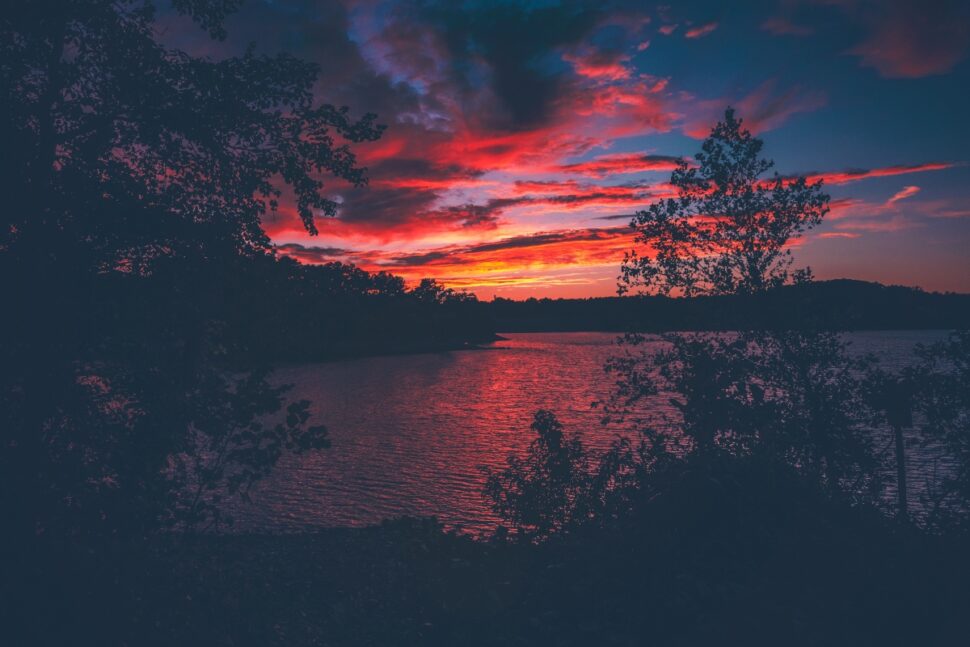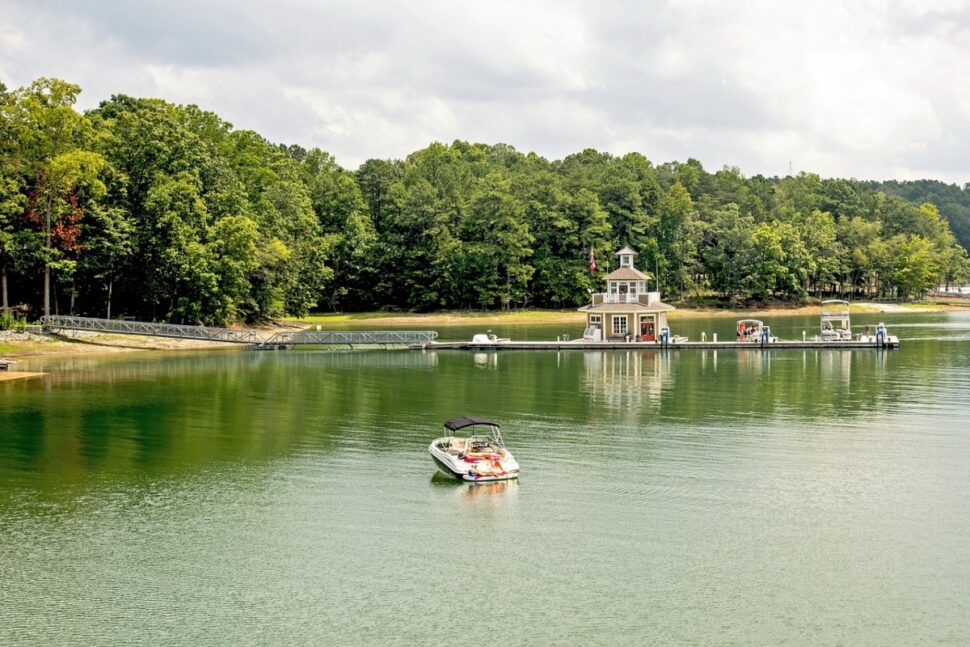Lake Lanier, the largest lake in Georgia, is a popular destination for boating, swimming, fishing, and other water activities. However, beneath its serene surface lies a dark and disturbing history—one that has left many intrigued, mystified, and occasionally, a tad bit spooked.
A reservoir for flood control, power generation, and recreation, Lake Lanier was formed in 1956. This was done by flooding over 50,000 acres of farms, woodlands, and towns by the United States Army Corps of Engineers.
The Haunting Atmosphere Of The Lake

Among the submerged communities was Oscarville, a historically Black town that had suffered racial violence and displacement in the early 20th century. Along with cars, boats, and other debris, many Oscarville buildings, roads, and cemeteries still rest at the lake’s bottom, having not been removed before its filling. Some believe that the spirits of the people who lost their homes and lives in the lake’s creation still haunt the waters, seeking revenge or justice.
Others attribute the lake’s eerie atmosphere to the natural phenomena that occur in the lake, such as methane bubbles, algae blooms, and underwater currents. Whatever the cause, Lake Lanier has been the site of numerous accidents. There have been drownings and disappearances over the years, with more than 200 fatalities reported since 1994. Despite these grim statistics, Lake Lanier continues to attract millions of visitors every year. Curious travelers enjoy the lake’s many attractions and amenities, including water parks, beaches, golf courses, and marinas.
Lake Lanier’s Persistent Allure

But what draws people to a place with such a sinister past and present? And how do they cope with the fear and risk of venturing into the lake? One possible explanation is that people are fascinated by the mystery and thrill of Lake Lanier. These individuals seek to challenge themselves and test their limits. Some may even hope to encounter something paranormal or supernatural and experience a sense of awe and wonder.
A second theory is that people don’t care about or aren’t aware of the risks posed by the lake. Instead, some vacationers focus on the lake’s best features. Since they see the lake as a tranquil getaway, they choose to disregard the red flags and other indicators of potential danger. A third possible explanation is that some people are respectful of and interested in the lake’s past. These people seek to learn from and honor the stories and memories of those who lived and died there. They may perceive the lake as a source of connection and knowledge while recognizing and appreciating its beauty and diversity.
For whatever reason, Lake Lanier continues attracting curious sightseers searching for an adventure they won’t soon forget. Whether you are a thrill-seeker, a fun-lover, or a history buff, Lake Lanier has something to offer you.
